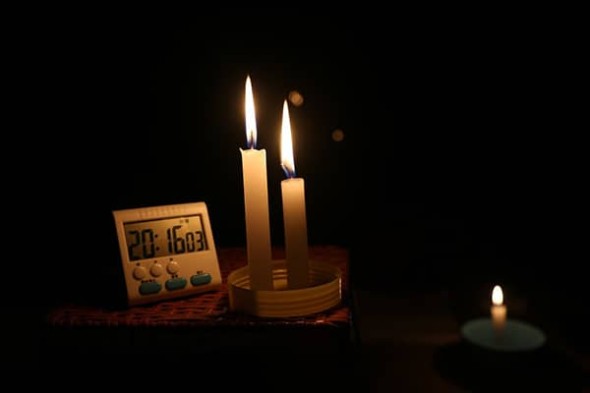We Are Not Texas, But We Could Have Been
Posted on March 2, 2021 by Bob Jenks
Tags, Energy

Massive power outages and sky-high bills: the flaws in Texas’s deregulated energy system have been exposed. The root causes of the extended statewide blackouts following a severe winter storm that hit the state in February of this year have been well covered in news media: requirements for adequate resources and reliability were left to the market. Prices were deregulated, and some residents are now getting electric and gas bills that are in the thousands of dollars. It is easy to sit back and be glad that we are not Texas. But Oregon could have had the same system.
Twenty years ago, Portland General Electric (PGE) was owned by Enron. In 1997, Enron proposed a radical deregulation plan for Oregon. CUB led the charge to oppose that scheme, and to this day we consider its defeat one of CUB’s greatest victories.
Enron’s deregulation proposal for Oregon was similar to the current reality in Texas. The plan included few customer protections. Oregon residential customers would no longer purchase electricity from a regulated utility, but instead from an unregulated marketer. The marketer would buy power in the wholesale market and resell it to the customers. Enron was clear that there should be no rules requiring price disclosure when marketers were signing up customers, so customers would not know the potential price impacts of the offered plans. Rather, the customer could fire the marketer and find a new electricity supplier.
Enron also wanted to end Oregon’s integrated resource planning process that requires utilities to evaluate the need for additional generation and energy efficiency to ensure adequate supply during conditions of peak demand. Enron’s assumptions were that the wholesale market would provide reliable power at reasonable rates, and that individual customers had adequate information to choose their marketer.
During Winter Storm Uri which dropped large amounts of snow and ice across Texas between February 14-15, the state saw its electric system fail, leaving millions of customers without power. Without reliability standards in place, the system was not designed to maintain itself in winter. Wholesale electric rates rose to $9/kWh. Many customers were on rate plans that tied their rates to the wholesale market, causing bills to rise to thousands of dollars. (The average residential customer in Oregon uses about 800kWh per month—$9/kWh would translate into a $7,200 monthly electric bill).
In retrospect, it is easy to look at the Texas system today and realize its faults. But were these problems predictable? I recently went back and reviewed my 1998 testimony analyzing Enron’s deregulation plan for Oregon and found that these kinds of problems were anticipated. According to CUB’s testimony:
“During the recent heat wave in the Midwest, we saw an energy company fail to provide service. This set off a panic which saw the market cost of power rise to $7/kWh. While price is obviously a problem, the bigger problem is whether customers can count on energy providers when they really need the energy and the demand is greatest: during heat waves or cold spells.”
Reliability problems during cold spells, and astronomical prices, were easily predictable.
It was clear to us that Enron’s deregulation plan was based on free market ideology, and not analysis of how it would benefit customers. Enron had a clarification session to help answer questions about its plan. The company was clear that it wanted a market where consumers simply were not given the information they needed to understand what electricity would cost:
“Do you believe that mandating price disclosure is compatible with innovation?”
PGE/Enron: “No.”
The ideology of the Enron proposal was circular: whatever is produced by the free market is inherently beneficial because it grows out of choices that individual customers make in a free market. By Enron’s rationale, millions of Texans who lost power and who are now getting ridiculous bills are benefiting because they are getting what they chose.
Of course, without regulation of rates and power supplies, there were opportunities for profits – large profits. We are also seeing this is Texas. Power generators are seeing huge windfall profits.
I feel a lot of empathy for Texans. What has happened to them could have happened in Oregon. History is an invaluable teacher, as CUB remains vigilant against future threats to our state’s regulatory framework and the customer protections it provides.
To keep up with CUB, like us on Facebook and follow us on Twitter!





03/25/21 | 0 Comments | We Are Not Texas, But We Could Have Been